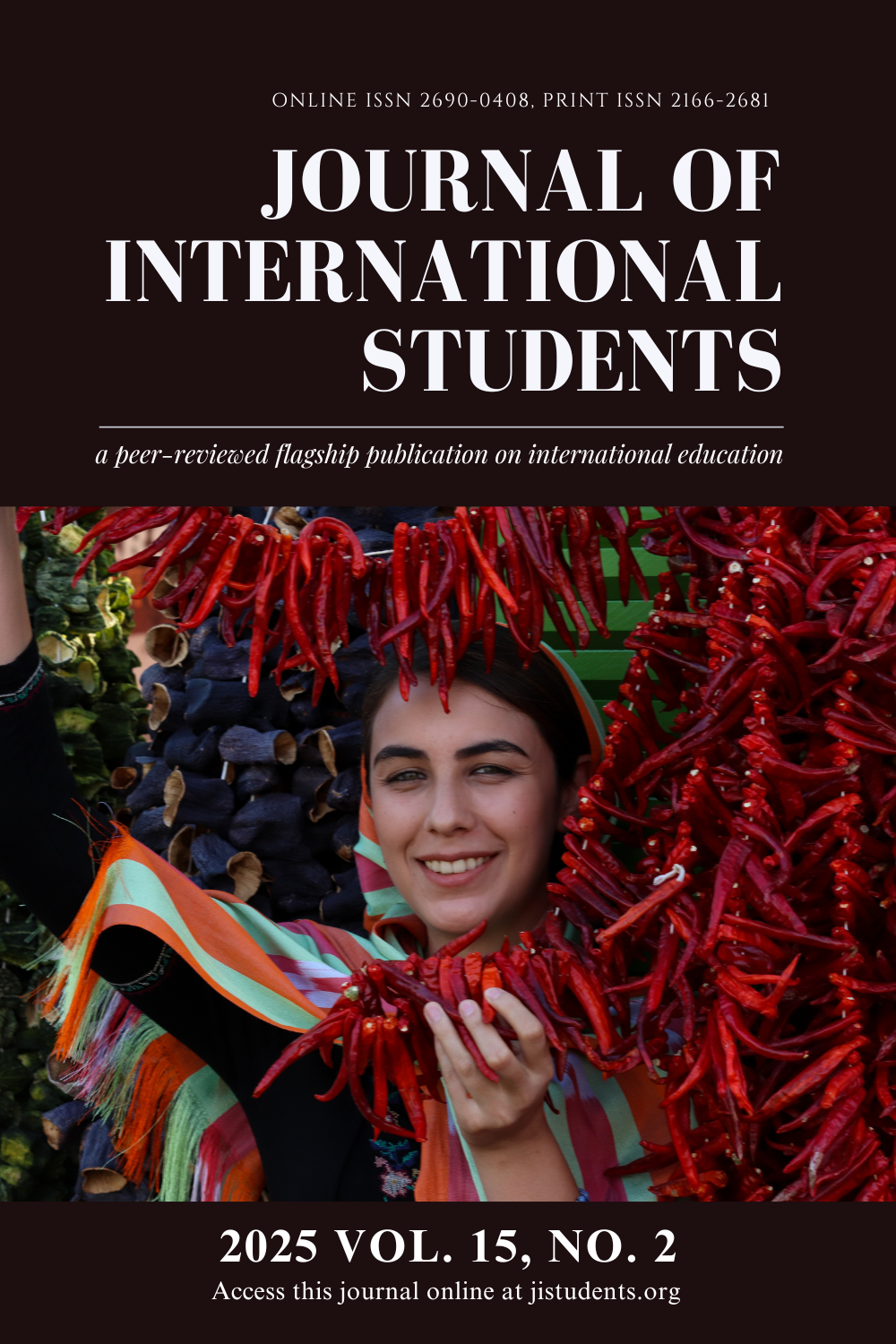Immobility, remote education, and racism experiences of Chinese and Korean international students during COVID-19
DOI:
https://doi.org/10.32674/800m2p43Keywords:
International students, precarity, (im)mobility, (neo)racism, COVID-19Abstract
This study examines international student experiences from two different yet intersecting dimensions: immobility and racism on campus during COVID-19. In addition to pre-existing challenges, COVID-19 introduced additional barriers to international student life. During the pandemic, international students encountered an unexpected remote education system designed to bridge their transnational connection with American higher education. This study aims to uncover the experiences of Chinese and Korean students and understand how COVID-19 further complicated their situations. The research reveals that international students also faced discrimination at various levels, exacerbated by heightened anti-Asian sentiments and the political climate during the pandemic. As hate incidents increased, international students began to recognize that educational institutions were not safe spaces but rather contact zones operating within power differentials. However, this study concludes that despite the intensified vulnerability caused by COVID-19, international students demonstrated resilience through various copying mechanism while finding this period of immobility meaningful.
Downloads
Published
Issue
Section
Categories
License
Copyright (c) 2025 Journal of International Students

This work is licensed under a Creative Commons Attribution-NonCommercial-NoDerivatives 4.0 International License.
All published articles are licensed under a Creative Commons Attribution-NonCommercial-NoDerivs 4.0 Unported License.















